Humanist marriages 'least likely to end in divorce'
- Published
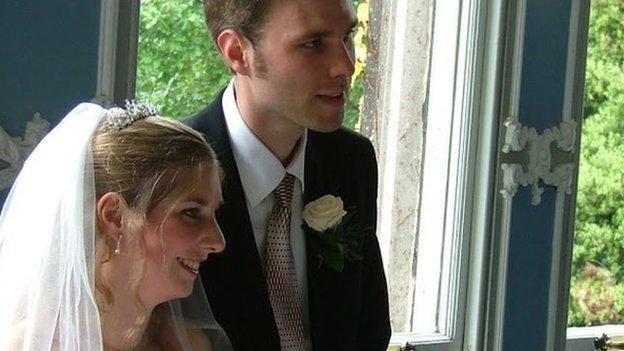
Karen Watts & Martin Reijns were the first Scottish couple to have a humanist wedding
Scottish couples who chose a humanist wedding are less likely to divorce than those who had other types of marriage ceremony, figures for the BBC suggest.
Humanist weddings have been legal in Scotland since 2005 and are now more popular than Church of Scotland and Roman Catholic weddings combined.
Marriage experts said divorce rates across the UK generally were declining.
They said other factors could determine whether couples stayed together, such as age, wealth and shared values.
The statistics, obtained from the Scottish Courts and Tribunals Service (SCTS) for BBC Radio 4's Sunday programme, reveal that since Humanist ceremonies began couples married in them are:
Three times less likely to divorce than Roman Catholic marriages over the same period.
More than two times less likely to divorce than Church of Scotland marriages.
Almost four times less likely to divorce than civil marriages.
In 2017-18, the last year full figures are available, there were 5,702 humanist marriages in Scotland.
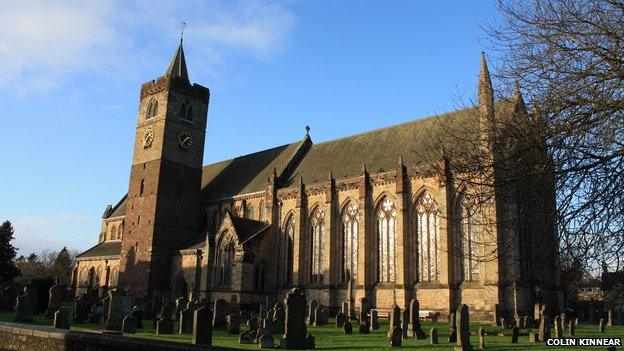
The traditional church wedding has been declining in popularity
There were 3,166 Church of Scotland ceremonies and 1,182 Roman Catholic weddings.
The most common type of wedding was a civil ceremony, of which there were 14,702.

What is a humanist wedding?
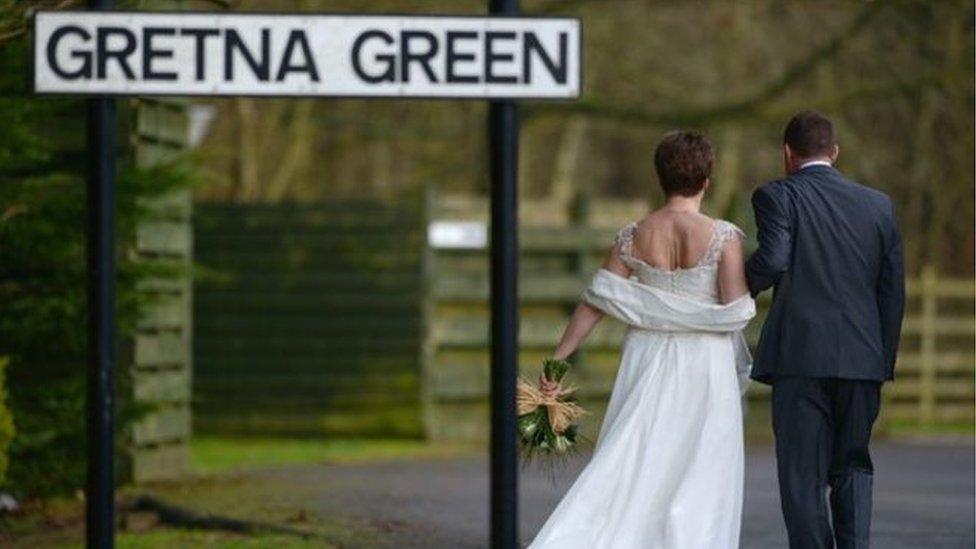
Scotland and Northern Ireland are the only parts of the UK where humanist weddings are legally recognised
A humanist wedding is a non-religious ceremony to mark a marriage between two people. They are conducted by humanist celebrants and each service is different because the couple write their own vows and script.
Humanist weddings have been legally recognised in Scotland since 2005 and in the Republic of Ireland since 2012.
Northern Ireland legally recognised humanist weddings last year after a Court of Appeal ruling said it would breach human rights not to do so.
In England and Wales humanist ceremonies are permitted but do not carry legal recognition, meaning humanist couples must register their marriage civilly if they want to have a humanist wedding.
In last autumn's Budget, the Treasury announced a review into relaxing the rules around wedding venues in England and Wales. The move could bring the law more into line with Scotland, where there is more freedom in where couples can tie the knot.

Lower divorce rates
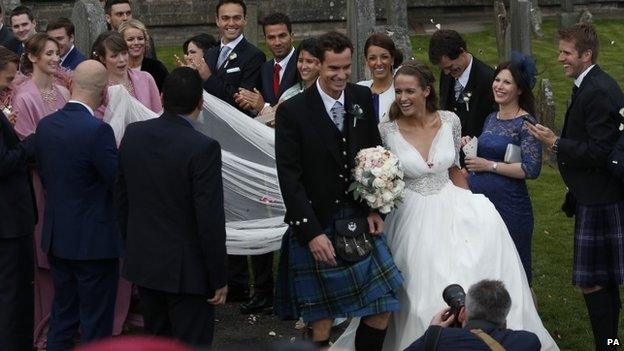
Andy Murray and Kim Sears chose a Church of Scotland wedding at Dunblane Cathedral
A breakdown of the figures shows that for marriages that have taken place in the past five years humanist weddings had a divorce rate of 1.7 in every 1,000, whereas civil ceremonies were 7.3.
The Church of Scotland divorce rate for marriages less than five years old was 5.8 in 1,000 and for Roman Catholic weddings it was five.
A similar pattern was found for couples married between five and 10 years and between 10 and 15 years.
Harry Benson, research director at the Marriage Foundation said the figures were "sensible" but there are "caveats".
"It may be that humanists are older or richer than most, either of which would account for their apparently lower divorce rates," he told Radio 4's Sunday programme.
"However couples with a shared faith or worldview tend to do better, which might well also apply to humanist couples. And as social pressure to marry has reduced, divorce rates have been tumbling across the board as fewer couples 'slide' into marriage and more 'decide'."
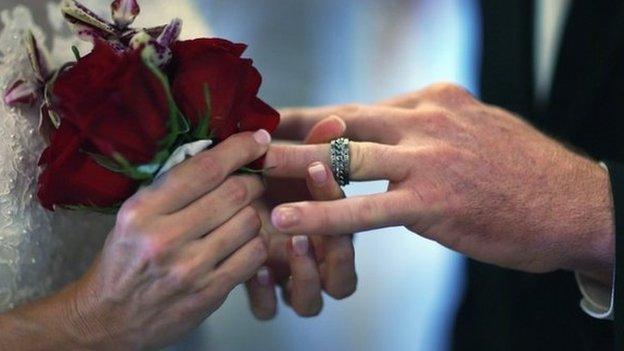
Divorce rates have been declining across the UK
The figures comes as a new poll by YouGov found that almost seven in 10 British adults support legally recognising humanist weddings in England and Wales.
Andrew Copson, chief executive of Humanists UK, said: "These figures show what a good start for couples a humanist wedding can be.
"Humanist weddings are deeply personal, with a unique ceremony crafted for each couple by a celebrant that gets to know them well and ensures that their script and vows reflect precisely who they are and the commitment they are making to each other."
Rev Norman Smith, convener of the Mission and Discipleship Council, said the Church of Scotland's wedding services were also personal and denied the type of ceremony was a factor in divorce rates.
"There are many factors in marriage that affect divorce rates, including age, socio-economic status, children, and whether partners have been married before.
"Without understanding many of the variable factors affecting divorcing couples, any suggestion of causation between type of ceremony and divorce rate is entirely spurious."
A spokesman for the Catholic Bishops' Conference of Scotland claimed the "fatal flaw" in the statistics was that Humanist weddings had not been around long enough to draw meaningful conclusions.
He said: "The average length of marriages in Scotland is around 30 years. Humanist marriages have been available for around 13 years. It will be at least 17 years before we can determine whether humanist marriages last any longer than religious marriages.
"Clearly the Catholic Church and the Church of Scotland have been marrying couples throughout living memory, between them they have married hundreds of thousands of Scots.
"The Humanists by comparison have married around 30,000 Scots, an extremely small pool of potential divorcees compared with the churches and a statistically insignificant dataset upon which to base any meaningful conclusions."
- Published18 June 2015
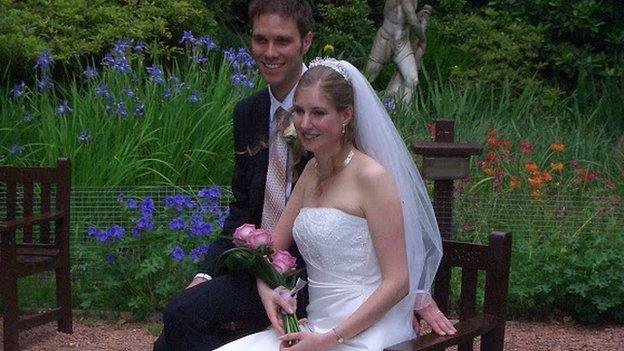
- Published19 June 2017
